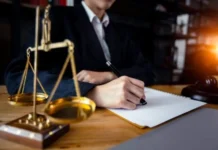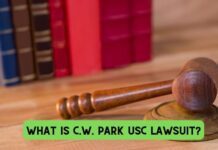Introduction
Car accidents can have devastating consequences, resulting in injuries, property damage, and emotional distress. When an accident occurs, determining liability or fault is crucial for insurance claims and legal proceedings. In this blog, we will explore the process of determining liability in a car accident and discuss the important role that attorneys play in establishing fault. Understanding the factors involved in assigning blame can help accident victims navigate the complex legal landscape and ensure they receive the compensation they deserve.
Gathering Evidence
In order to establish liability, a comprehensive examination of the accident scene and the collection of pertinent evidence are necessary. This involves capturing photographs of the accident scene, vehicle damages, and visible injuries. Eyewitness testimonies, police reports, and surveillance footage can also offer valuable insights. To ensure meticulous attention to crucial details, a car accident attorney can provide invaluable assistance in gathering and preserving evidence.
Accident Reconstruction
In complex cases, accident reconstruction experts may be called upon to recreate the events leading up to the accident. Using scientific principles and specialized techniques, these experts analyze factors such as vehicle speed, braking patterns, and road conditions to determine how the accident occurred. Attorneys work closely with accident reconstruction experts to understand the dynamics of the collision and establish liability based on their findings.
State Traffic Laws and Regulations
State traffic laws and regulations serve as guidelines for determining fault in car accidents. Attorneys familiar with these laws can examine how each party involved in the accident adhered to traffic regulations. Violations such as speeding, running red lights, or driving under the influence can significantly impact the determination of fault. An attorney’s knowledge of these laws helps build a strong case for their client.
Comparative Negligence
Many states follow the principle of comparative negligence, which means that fault can be shared among multiple parties involved in an accident. Attorneys play a crucial role in evaluating the circumstances of the accident and determining the extent of each party’s negligence. They gather evidence to support their client’s case and argue for a fair allocation of fault based on the available information.
Negotiation and Litigation
In some cases, determining liability requires negotiation or litigation. Attorneys skilled in personal injury law can engage in settlement negotiations with insurance companies on behalf of their clients. They present evidence, assess the damages suffered, and advocate for fair compensation. If a settlement cannot be reached, attorneys can represent their clients in court, presenting their case before a judge or jury to establish liability.
Conclusion
Determining liability in a car accident is a complex process that requires careful evaluation of evidence, knowledge of traffic laws, and expertise in negotiation or litigation. Attorneys play a vital role in establishing fault and advocating for their clients’ rights. By gathering evidence, utilizing accident reconstruction experts, and understanding state laws and regulations, attorneys can build a strong case to support their client’s claim. Whether through negotiation or litigation, their aim is to secure fair compensation for their clients’ injuries, property damage, and emotional distress. If you find yourself involved in a car accident, seeking the assistance of an experienced attorney can help navigate the legal complexities and ensure your rights are protected throughout the process.

















